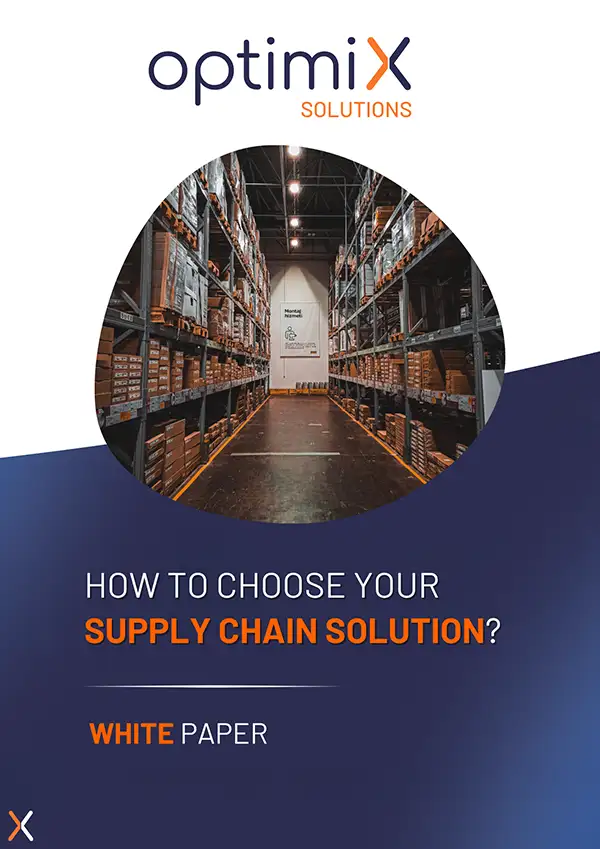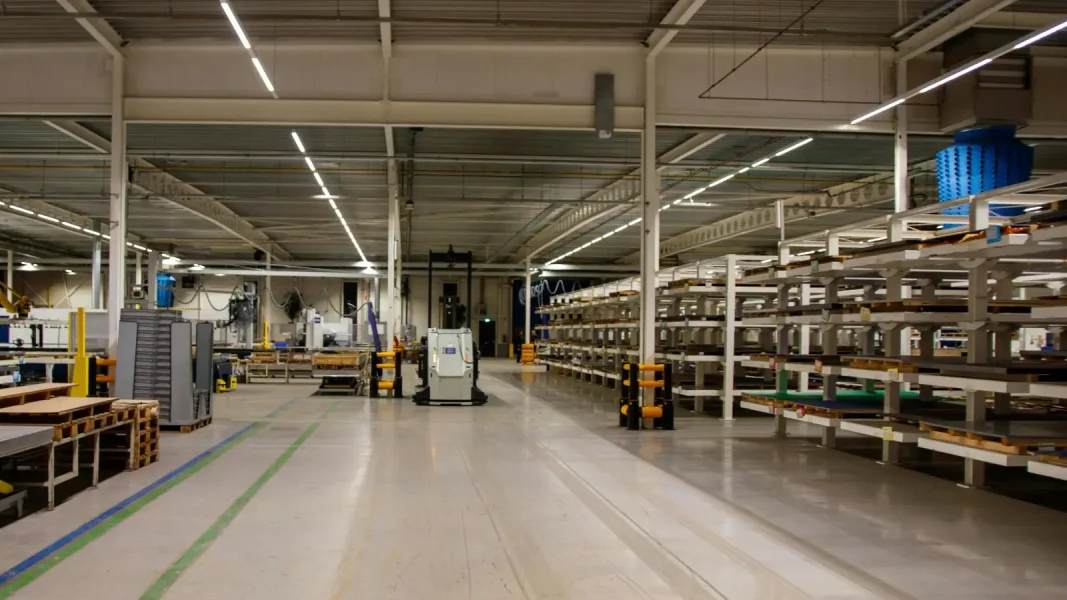In the complex and demanding world of healthcare, supply management plays a crucial role. It ensures the availability of medicines, medical equipment and other essential products, guaranteeing continuity of care and patient safety.
However, this sector faces unique challenges, from inventory management of perishable products to the need for rigorous traceability. Regulatory, cost and quality pressures make supply chain management even more critical.
In this article, we explore the major issues and challenges facing the healthcare supply chain, and how industry players can respond effectively.
Distributors: An essential role in continuity of care
These new outlets have led to an increase in the consumption of both medicinal and non-medicinal health products. By 2023, French pharmacies had diversified their revenue streams, not only through sales, but also through the provision of services. This generated a total of 2,2646 thousand euros, an increase of 1092% compared with 2021..
This rise in consumption has brought with it new challenges, which distributors had previously faced only to a limited extent: supply management.
Distributors play a central and indispensable role in the healthcare sector, where their mission goes far beyond simple logistical tasks. Their primary responsibility is to ensure continuous stock availability.
They must ensure that these stocks reach distribution points such as pharmacies and hospitals efficiently and under the best possible conditions. To achieve this, they not only have to manage stocks precisely, but also scrupulously comply with the regulations in force, which are particularly strict in this sector..
With the rise of new technologies and the rapid evolution of consumer health expectations, distributors have had to adapt their methods and integrate advanced management systems. and integrate advanced management systems. These systems not only optimize the entire supply chain, but also respond to specific industry challenges.
Take, for example, the management of heat-sensitive products, which require rigorous temperature control throughout their journey.
The role of distributors in the healthcare sector is not limited to logistics.but also involves close collaboration with :
- manufacturers,
- pharmacies,
- hospitals,
- other care structures.
This cooperation is essential to maintain continuity of careparticularly in emergency situations or during shortages.
Pharmacies: Towards a broader range of healthcare services
The development of pharmacies and the expansion of their services represent a major transformation in the healthcare sector. Traditionally, pharmacies have been confined to dispensing medicines and giving advice.
However, in the face of changing population needs and increasing pressure on healthcare systems, pharmacies have had to reinvent their role. They are now positioning themselves as local health centers. offering a wide range of services.
One of the most notable developments has been the introduction of pharmacy-based vaccination services, which have simplified access to essential vaccinations such as influenza and COVID-19. This development has not only increased immunization coverage, but also relieved overcrowding in traditional health centers.
Pharmaceutical consultations, which include personalized advice on managing treatments or preventing drug interactions, are another example of the evolution of pharmacy services. These consultations enable patients to benefit from quality supportThis often means no appointment is necessary, reinforcing continuity of care.
By integrating these new services, pharmacies play a crucial role in the care pathway, particularly for patients with chronic diseases. The personalized follow-up offered by pharmacists makes it easier to manage treatments over the long term, prevent complications and reduce hospitalization.
This model of local care is essential to meet the current challenges facing the healthcare system, by providing fast, efficient access to care, while relieving already overburdened hospital structures.
Supermarkets: a new player in healthcare?
Mass retail is playing an increasingly significant role in the healthcare sector, playing a key role in providing consumers with access to a wide range of products, from over-the-counter medicines to medical devices and wellness products.
Retail chains are integrating dedicated health departments, making these products more accessible, often at competitive prices. This is in response to growing demand for accessible, practical healthcare solutions. At the same time, some mass retailers are going one step further by developing partnerships with pharmacists or offering services such as in-store vaccination, thus broadening their local healthcare offering.
However, this expansion into the healthcare sector also raises challenges in terms of compliance with specific regulations, staff training and management of sensitive products. This requires a rigorous approach to guaranteeing the safety and quality of products offered to consumers.
Adapting to consumer demand
This makes supply chain agility a key factor in satisfying consumers, building patient loyalty and strengthening the reputation of healthcare providers.
Indeed, the greatest challenge facing supply chain solutions in this sector is to be able to respond rapidly to the expectations of increasingly well-informed and demanding patients, who want to receive their medicines in ever-shorter timescales, with guaranteed transparency on product origin and quality.
To adapt to these expectations, healthcare facilities and pharmaceutical companies need to adopt a patient-centric approach, integrating digital tools to better understand individual needs.
“
Optimix XFR helps you meet rising patient expectations while maintaining high standards of quality and compliance.
Juggling stringent regulatory requirements, fluctuating demand and the need to control costs is a growing task for distributors.
“
Supply chain benefits and challenges
- Improving the quality of care
A well-managed supply chain ensures that medicines and equipment are always available. This ensures a rapid response to patients’ needs and contributes to improving the quality of care..
For example, effective stock management helps to avoid shortages of essential medicines, ensuring uninterrupted treatment for patients.
- Cost reduction
Supply chain optimization in the healthcare sector can reduce costs on a number of levels. By automating processes and streamlining inventory management, facilities can minimize waste, avoid overstocking and benefit from economies of scale. This frees up financial resources that can be reinvested in other priority areas.
For example, financial resources can be reinvested in improving infrastructures or recruiting healthcare staff.
- Improved traceability and safety
The modern supply chain integrates advanced technologies, such as information systems and real-time tracking tools, to improve product traceability. This is particularly important for drugs and medical devices, where patient safety is paramount. Traceability enables each product to be tracked throughout its life cycle, reducing the risk of counterfeiting, distribution errors and regulatory non-compliance..
- Reactivity to health emergencies
An agile, well-coordinated supply chain is capable of responding rapidly to health emergencies, such as epidemics or natural disasters. In 2020, the COVID-19 pandemic demonstrated the importance of a robust supply chain for the rapid distribution of medicines, personal protective equipment (PPE) and vaccines. Good preparation and proactive management are the key to dealing effectively with such crises.
The many challenges of the supply chain
- Regulatory complexity
The healthcare sector is highly regulated, and compliance with local and international standards is imperative. Pharmaceutical products, in particular, must meet strict quality, safety and efficacy requirements. This regulatory complexity can slow down the distribution process and increase compliance costs.
- Risk management
The supply chain in the healthcare sector is exposed to numerous risks, such as drug shortages, stock-outs and delivery delays. These risks can have serious consequences for patients and healthcare facilities alike. Proactive risk management is therefore essential to anticipate and mitigate disruptions..
- Technological challenges
The integration of new technologies into the supply chain, such as artificial intelligence, big data, or blockchain, is a major asset, but it also poses challenges. Healthcare facilities need to invest in suitable technological infrastructures, train their staff and ensure that systems are compatible with each other. The cost and complexity of this transition can be an obstacle for some organizations.
- Coordination problems
The healthcare supply chain involves many players, including manufacturers, suppliers, distributors and healthcare facilities. Coordination between these different players is often complex, and problems of communication or collaboration can lead to inefficiencies. A lack of coordination can also exacerbate shortages and delays.
———————————–
The fast-growing healthcare sector is facing increasing supply chain challenges, linked to the diversification of sales outlets and ever-increasing demand.
Pharmacies, distributors and even retailers play crucial roles in ensuring access to essential healthcare products, while adapting to rapidly changing needs and technologies. Pharmacies are expanding their range of services, offering a more comprehensive range of local care that helps to relieve the burden on hospital systems.
Distributors, for their part, ensure complex inventory management and rigorous compliance with regulations, while mass retailers are positioning themselves as a new key player in the accessibility of healthcare products.
The ability to adapt to consumer expectations, integrate new technologies and respond to regulatory challenges is essential to maintaining the efficiency and safety of supply chains. As the sector continues to evolve, collaboration between all players and the adoption of innovations are essential. will remain crucial to ensure a rapid and effective response to public health needs.
The stakes are high: to reinforce continuity of care, meet patient expectations and guarantee high-quality public health in a constantly changing environment.








